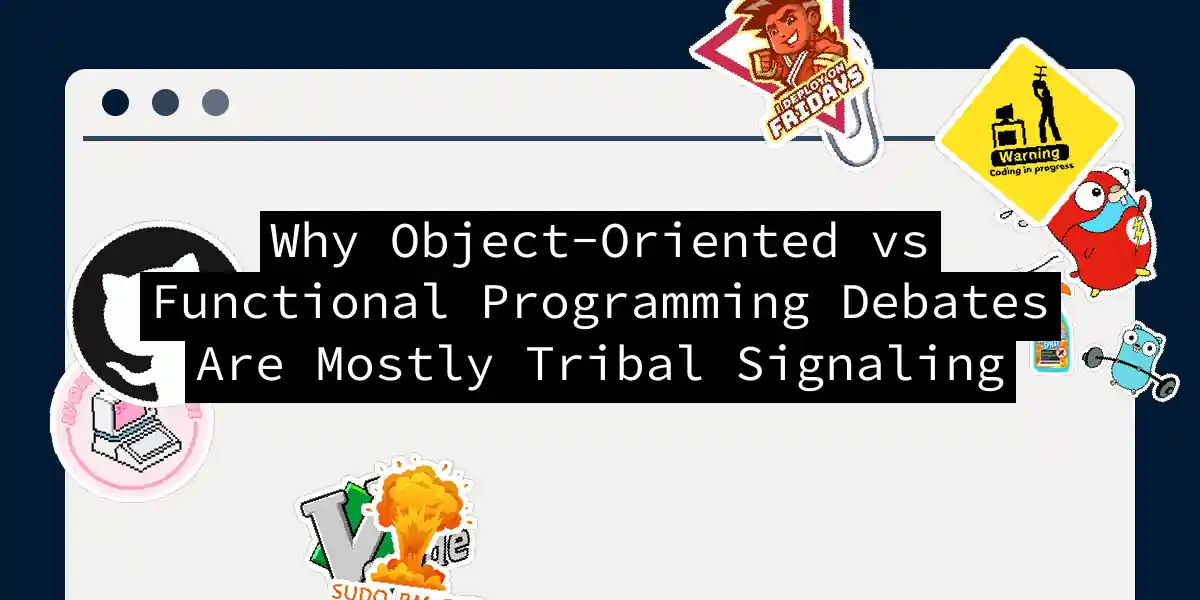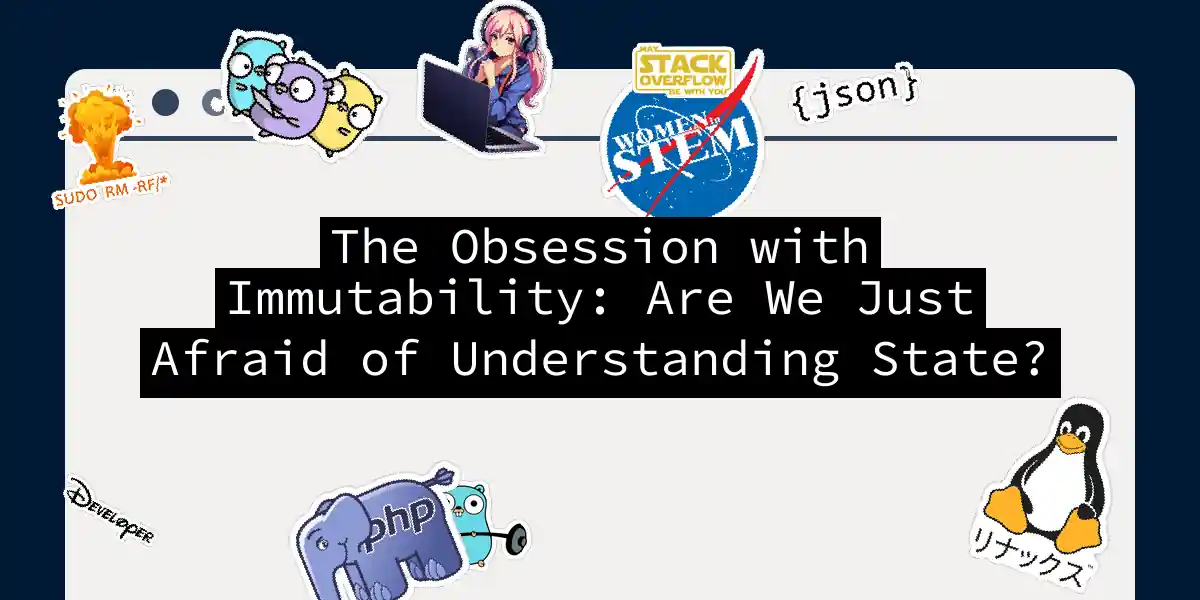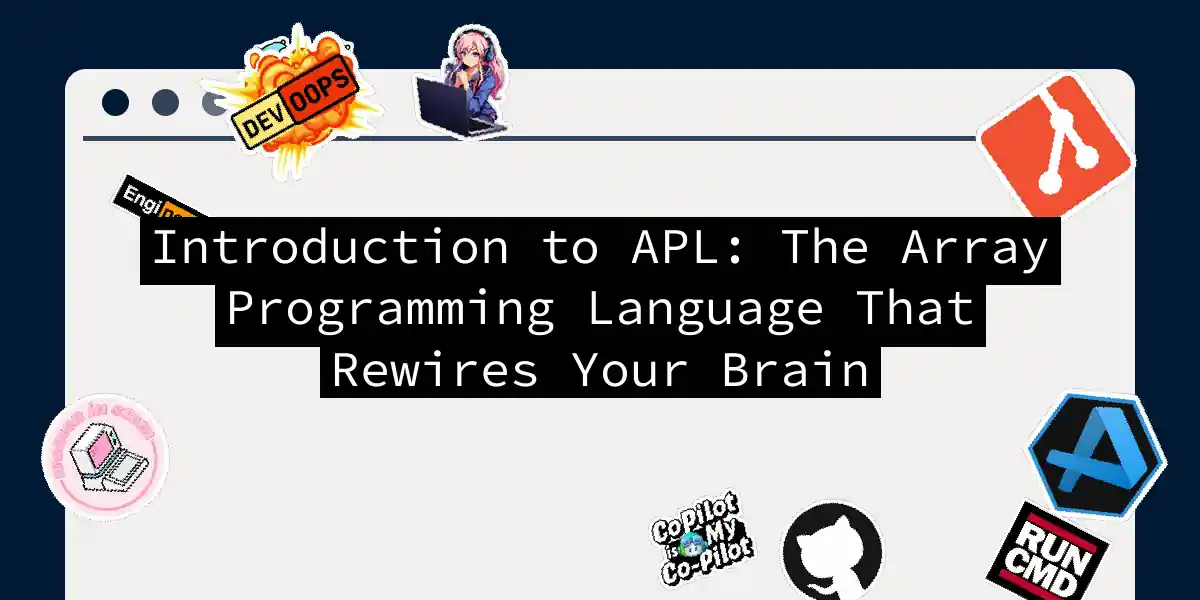
Why Object-Oriented vs Functional Programming Debates Are Mostly Tribal Signaling
You know what’s funny? The OOP versus Functional Programming debate is essentially a bunch of developers standing in opposite corners of a room, throwing increasingly sophisticated insults at each other, when both corners are actually describing the same piece of furniture from different angles. I’ve watched this tribal warfare for years. Smart people I respect—genuinely talented developers—will passionately argue that their chosen paradigm is superior, almost like they’re defending their honor in a medieval duel....



